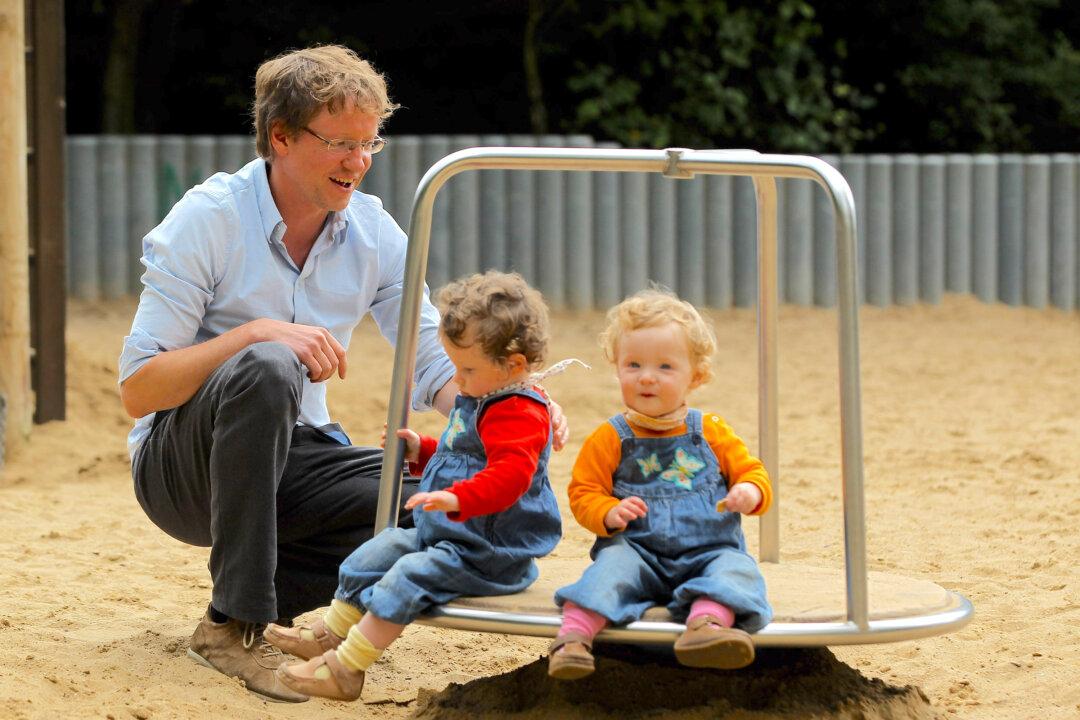Be the Change You Want to See
Raising benevolent children often begins with being benevolent parents. In fact, a child mimics the behaviour of those they spend the most time around. Let’s look at couple of common examples.
If your child often talks back when given instructions, do you do the same to your husband or wife, friends or family members? Are you rude in your speech? Short tempered? Do you gossip? Or talk poorly of others?
If your child doesn’t listen to you, do you genuinely listen to your child? Or listen to others? Or do you care more about your own self-interests rather than the well-being of others?
With some careful thought and consideration of your behavioural patterns, you may notice some striking correlations with your child’s troubling behaviour. At all times demonstrate through action [to your child] a high standard of behaviour. Be the change you want to see. You may just see magical results. Being a very loving, tolerant parent who listens to their child’s needs, but is also firm and gives relevant discipline creates an environment for a child to blossom and thrive into mature adults.
Take a little time to also reflect on your own upbringing and how it’s shaped your parenting. Whether we know it or not we naturally adopt our parents’ strategies. What did your parents teach through their actions? Were they calm? Kind? Compassionate? Thoughtful? Helpful? Caring? Or were they the opposite? And how did it shape you?
Modern Media May Damage a Child’s Good Nature
There’s no denying the fact that media can have damaging effects on a child’s well-being. From poor self-esteem, through to violence and addiction, so much of society’s vices are learned through media [television and computers].
Let’s look at the basic agenda of many of the media companies: A top priority for media executives is to create addictive programming that brings in lots of revenue. Take for example reality television that even young children are exposed to nowadays, a carefully crafted modern concept that taps into human beings innate desire to socialize. This alone is not sufficient to brainwash families. All sorts of extra morsels are added in by writers including easy divorce, sex and pornography, violence, affairs and gossip.
Many parents are concerned about what they feed their children, but over look what goes into the most sensitive part of the body—the brain. All media consumed goes into the mind and heart and stays there for a very long time often shaping young children into a generation of selfish consumers, something many big corporations and some governments have purposely planned to align young children with cultural Marxist/communist ideas.
The best solution is to remove your television from the family home. Compensate your children and family with wholesome activities [which we will talk about next] and educate them with traditional values.
Fundamentally they need to understand that there is a lot more to life than media and that they should not become slaves to it. The second best solution is to minimize television/screen time to one hour per week and pick wholesome programming.
Engage in Wholesome Family Activities
Children need to be engaged in the right activities to enjoy a balanced childhood, and also develop into responsible adults. Leaving children home alone for long periods, having both parents working around the clock and having them be more influenced from their friends rather than their family can create emotional issues leading to behavioural problems.
Although there are many challenging issues that parents face including mortgages and seemly endless bills and commitments, see what sort of lifestyle changes you can make to create more family time for you and your children. It may require a sea change, maybe going back to one parent working if both are, or a new family business. There are countless ways to improve lifestyle and family time if one is willing to.
More family times allows children to feel part of a strong family unit, giving them more confidence, purpose and belonging in life. This paired with wholesome family activities like camping, bush walking, biking, crafting, cooking and just enjoying each others’ company is priceless in giving children the best start.
Make time for them and think back to what you did in childhood when there wasn’t so many media options for entertainment. What activities did you do? Young boys adore time with their fathers [their hero] and young girls love to bond with their mothers doing feminine duties and activities. And when you add all family members together—it is a recipe for success.
Patience-Patience-Patience
It is important to remember that children do not have the mental and emotional intelligence as a fully-grown adult would. This is a simple concept but so easy to overlook. Keeping it in the back of your mind can allow you to be more understanding of your child and also exercise restraint in terms of not putting too much on their shoulders.
Let’s look at an example. A parent can often yell at a child angrily if the child doesn’t carry out a certain duty according to the parents’ expectation. But think about the expectation for a moment. You may know it well, but is it reasonable to expect a 5-year-old child to know it like you do? Maybe not. Children are very sensitive to being put down in negative ways by their parents, it can destroy their self-confidence. Constructive criticism maybe necessary every now and then, but set realistic duty’s and boundaries for your children according to their age and ability.
Keep in mind that children are quirky by nature, they do funny things sometimes and also take much longer to complete tasks [kids are like Zen Masters—a great example for us adults who want it all yesterday]. You definitely don’t want to cultivate restless children that are stressed out, so calm down yourself and be a balanced individual. Some adults today are on a bullet train, and are career driven money obsessed.
Children operate in a completely difference time space. You just want your child to get into this bed, they want to sing, watch the toothpaste coming out of the tube, they might spend five minutes looking at the toothpaste coming out. That’s how they do things so have patience and learn from these mini Zen masters a thing or two about being calm.
Disciplining With a Good Heart Fosters Goodness in a Child
Being ‘fair’ but ‘firm’ and disciplining with a good heart is so important. Anger teaches your child absolutely nothing. Teaching with reason is key. Tell them the ‘why’ in-depth with a calm heart, take the time to sit down and explain to them. If they are really upset, be a little strategic and bring it up again at the right time. You may be surprised at the results you see in your child with this approach.
Once the blame is removed from the equation they will be all ears, and respect what you have to say deep down. Isn’t this what a parent ultimately wants? A respectful child that is good natured? Although it can require a great amount of patience on the parents’ part in the beginning when they ‘push’ your buttons, you will get better at it over time.
Truly being good hearted individual requires practice and if it wasn’t taught to you thoroughly in your childhood you may have to teach yourself—reprogram yourself. It’s worth it. They often say family violence and abuse is inter-generational so you are the hope for the next generation!




